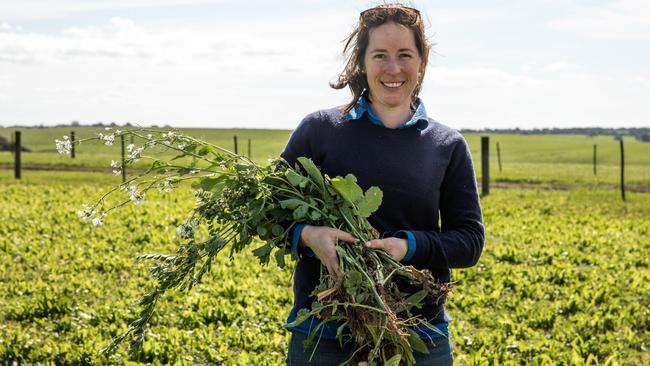Farming for the Future program linking profits to climate-resilient farms
Work has started on a new 1500-farm, multi-year research program, Farming for the Future, to link ‘natural capital’ investment to profits.

Researchers, farmers and agribusiness investors will come together over the next 18 months to get their first sense of the “size of the prize” linked to farm improvements that could also unlock beneficial export and climate outcomes.
Work has started on a new 1500-farm, multi-year research program, Farming for the Future, initiated by the Macdoch Foundation to link “natural capital” investment to profits.
Natural capital includes soil, water, pasture and crop lands, riparian areas, native vegetation, agroforestry and environmental plantings, and animals.
The foundation, chaired by rich-lister Alasdair Macleod, has partnered with PwC Australia, which has released a discussion paper on the program.
The paper cites research at a small scale, which indicated farms that enhanced natural capital were able to increase their average annual net income by more than 40 per cent.
As Australia embarks on its plans for zero emissions by 2050, the discussion paper highlights that “climate change is locked in” with policies to address the issue adopted by all of Australia’s major trading partners.
“We are increasingly being challenged to develop a coherent climate change strategy; consumers are driving supply chain firms to adopt sustainability criteria in sourcing decisions; and banks and insurers are increasingly facing shareholder and stakeholder criticism if they do not embrace strategies to mitigate environmental risks and concerns,” the paper says.
“We need to engage in the initiatives that are being developed on a national and global level over sustainability in a cohesive and collaborative way. If we don’t, we risk not only our legacy as leaders in food and fibre production but we also risk being the ‘last mover’ in a competitive global system and losing a competitive advantage maintained for decades, if not longer”.
As a direct result of climate change, it is estimated producers are now less profitable, with profit declines estimated at 23 per cent or $29,000 per farm per year over the last 20 years.
The first phase was the design of the program, which has been completed with inputs from stakeholders, including the National Farmers’ Federation, said Macdoch Foundation CEO Michelle Gortan.
“The next phase is 18 months, we are hoping to ideally recruit about 400 farms to be part of this study.” The project will involve comprehensive soil testing, farm practice analysis and natural resources assessment.
NFF CEO Tony Mahar said farmers had been dealing with changing dynamics and environments. “The hope with this is it adds and complements the other work being done around recording, measuring and monitoring sustainability.
“It allows us to continue to be informed. A key issue for the agriculture sector (in the carbon emissions debate) is we want to able to be grow as an industry and make informed decisions around policies, including climate change policy, and decisions on the farm.”
“It’s also about diversification of markets, but also about responding to markets. Farmers know the market is changing … consumers are demanding different requirements from all supply chains, but particularly the agriculture sector.
“From a farm business perspective, if it translates in the way we think it should, it could mean better resilience, better efficiency, more diverse levels of income that allow farmers to do this business, but they are also recognised and rewarded for managing natural capital of the region, the farm and the country.”




To join the conversation, please log in. Don't have an account? Register
Join the conversation, you are commenting as Logout